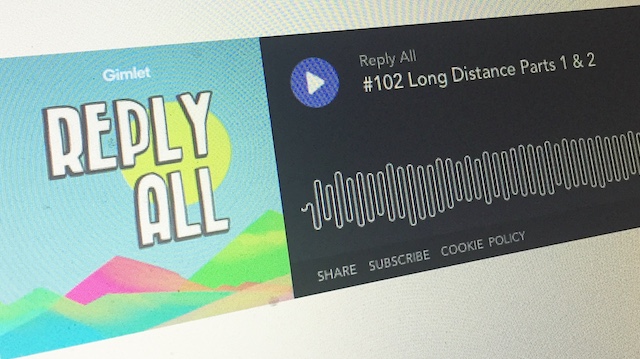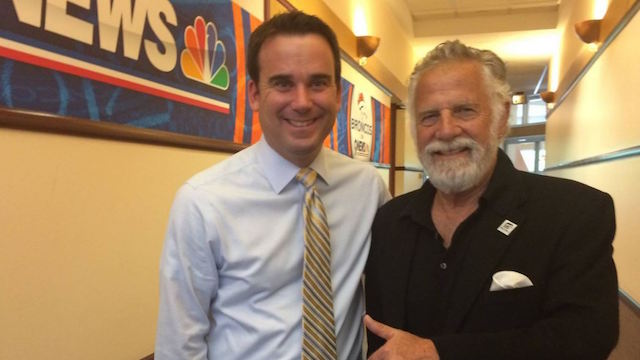I listen to podcasts a lot … too much, let’s go ahead and say.
According to Stitcher Smart Radio, I have listened on that app alone to nearly 3,000 hours of podcasts and more than 14,000 episodes. At the time of this writing, I carry a 54-day listening streak.
I’m a reporter in TV news, but as a consumer I choose podcasts far more. And I often think the two have little in common. Podcasts run way longer, often function as a talk show or long-form interview, and of course lack the video component that is so essential in my work. But some podcasts tell stories. Some episodes seem like extended versions of what a television reporter would produce every day.
And one particular episode – the two-part “Long Distance” by Reply All – kept me so hooked and contains so many storytelling lessons that I felt the need to dissect it, for all our benefits.
“Long Distance” premiered last year and reran as a single episode last month. I learned about it last weekend, when a friend at brunch claimed it as his favorite but wouldn’t reveal anything about it. I clicked on it that night before bed, thinking I’d listen for 15-20 minutes and then resume it the next morning. I listened to the whole thing. And I found it ripe with lessons for any storyteller, regardless of medium. Here’s my view on how the producers and reporters developed such a fascinating episode:

